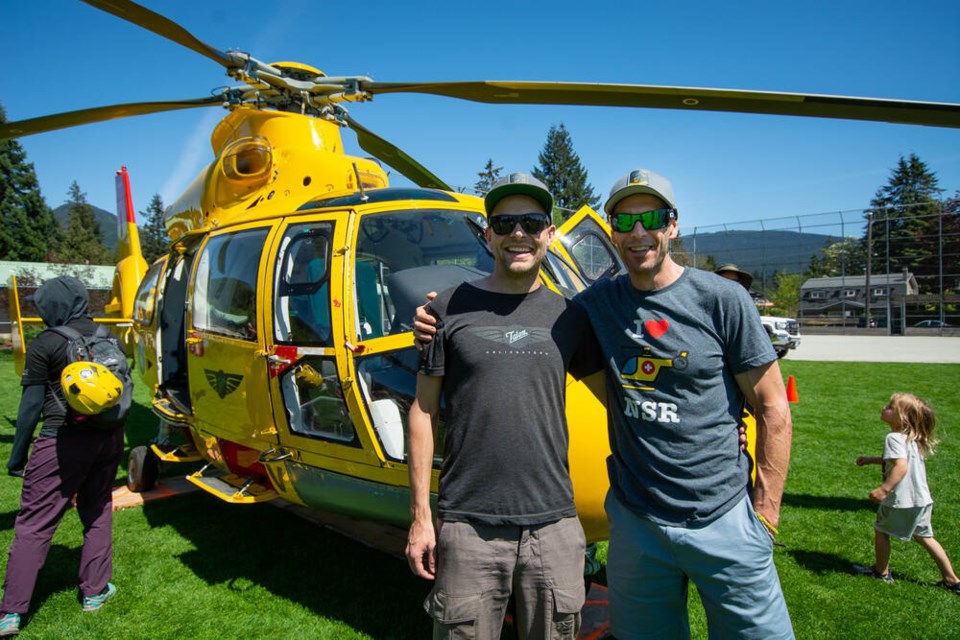There’s another big yellow helicopter flying through the North Shore skies that further expands the capabilities of our dedicated search and rescue volunteers.
Talon Helicopters has added an Airbus AS365N3 Dauphin to its fleet, giving North Shore Rescue another valuable tool to carry out missions with more flexibility than before. The new machine was debuted to the community at the Outdoor Safety and Emergency Preparedness Open House in North Vancouver on Saturday.
Talon already has a similar Dauphin aircraft, the Airbus AS365N2, in black, which NSR deploys for rescue operations including night hoists. But the new yellow machine is even more capable than its cousin.
“Having a tool of this calibre available to us is a huge asset,” said North Shore Rescue team leader Mike Danks said. “This is an insurance policy for our community.”
What sets the Airbus AS365N3 apart from the rest of the fleet?
While the airframe of the helicopter is the same as the AS365N2 – which allows for pilot, co-pilot, and a hoist configuration of eight crew seats and a stretcher in the rear cabin – the new aircraft has bigger engines.
“[With] bigger engines, you have more usable load, you have better performance hot and high,” explained Talon president Peter Murray. Hot weather conditions at high altitudes means thinner air, which lowers helicopter performance in alpine rescue situations.
Most rescues in the Lower Mainland happen up to 6,000 feet, Murray said, and at that elevation, the AS365N3 is just a better performer.
“We can get up into the mountains in the summertime,” he said. “If we’re hot and high, there’s more usable load available … that means we can carry more fuel, so we can be out there longer and we can take bigger, heavier weights.”
The new aircraft will also have a faster hoist: 250 feet per minute, compared to 150 feet per minute. Ultimately, all these increases in performance can lead to better patient outcomes during rescues, Danks said.
Technically speaking, the aircraft has a maximum of 961 shaft horsepower on each of its two engines, compared to 763 per engine on its cousin model. The extra horsepower means that the AS365N3 gains around 600 pounds of useful load in hot and high conditions, explained Talon pilot Jarrett Lunn, who debuted the helicopter with Danks on Saturday.
At the event, parents, kids and other members of the community got a chance to experience the helicopter up close.
“[The kids] got inside into the pilot seat and into the co-pilot seat, hopped in the back to see where the rescuer is trying to do their work,” Danks said. “The most important piece for us is the helicopter has attracted people to come and see us.
“At the same time, we’ve had an opportunity to deliver our safety message to them. And that’s really what this is all about: educating the kids, as well as the parents, on how to enjoy the backcountry safely,” he added.
Before Talon acquired it, the AS365N3 was used for marine search and rescue in the Netherlands. NSR hopes to have the helicopter operational by next week, with night vision modifications coming later in the year.





